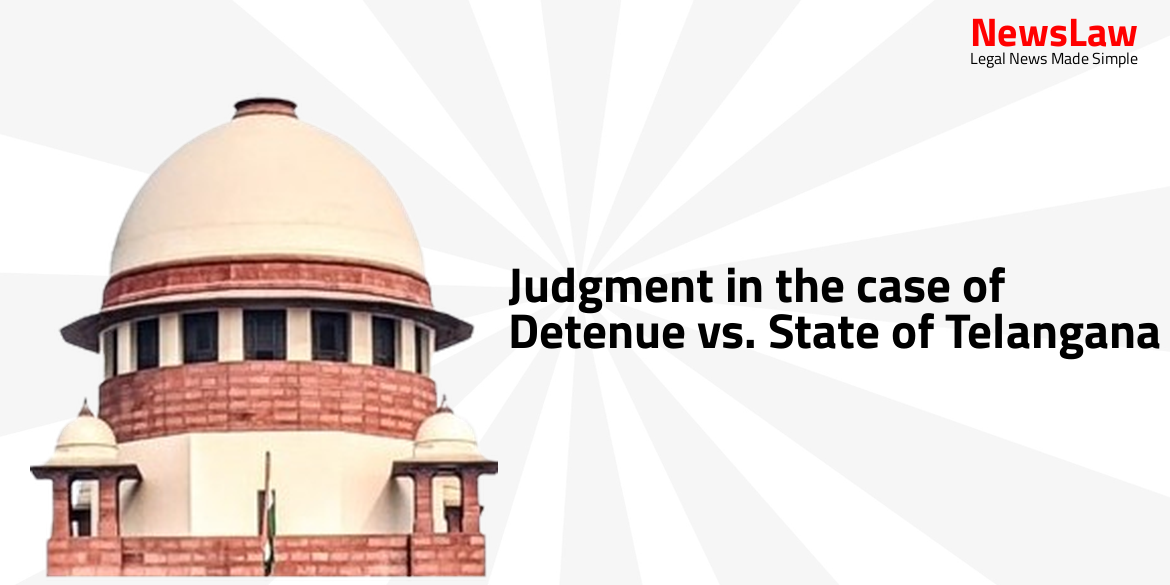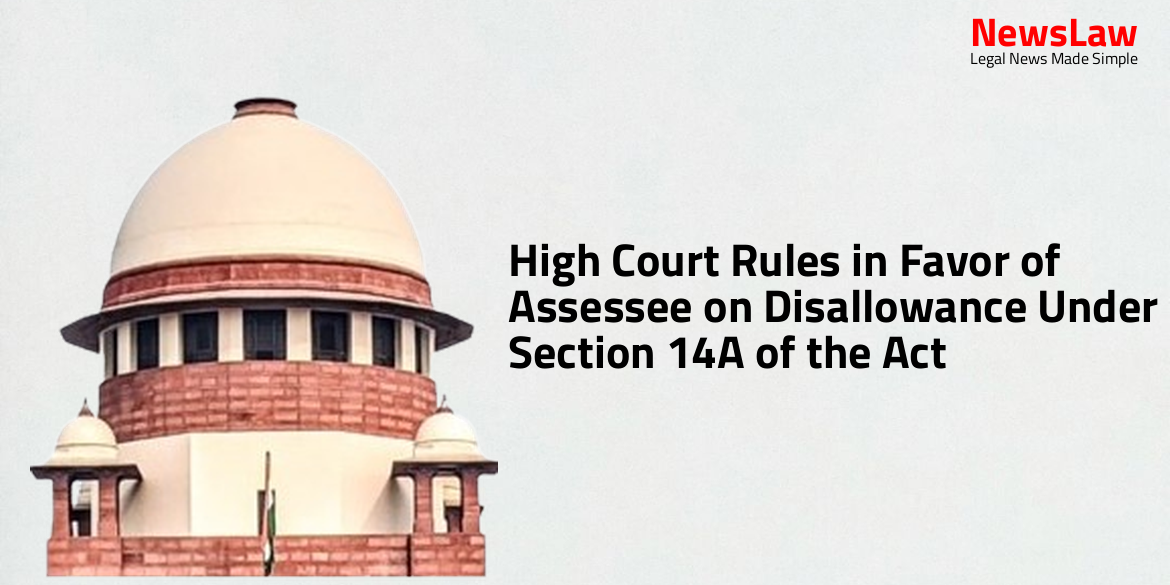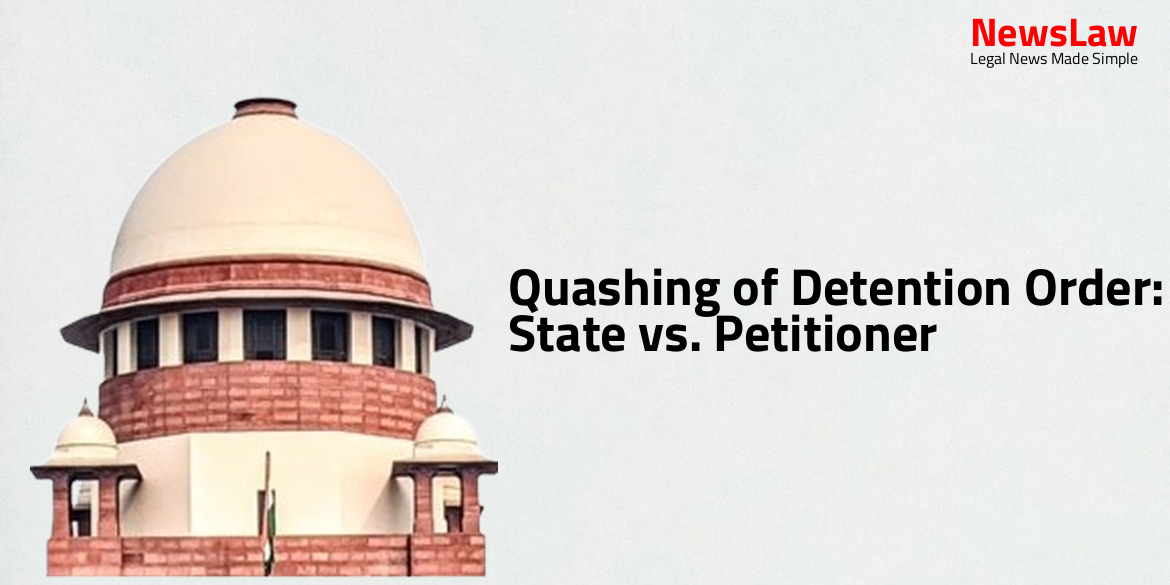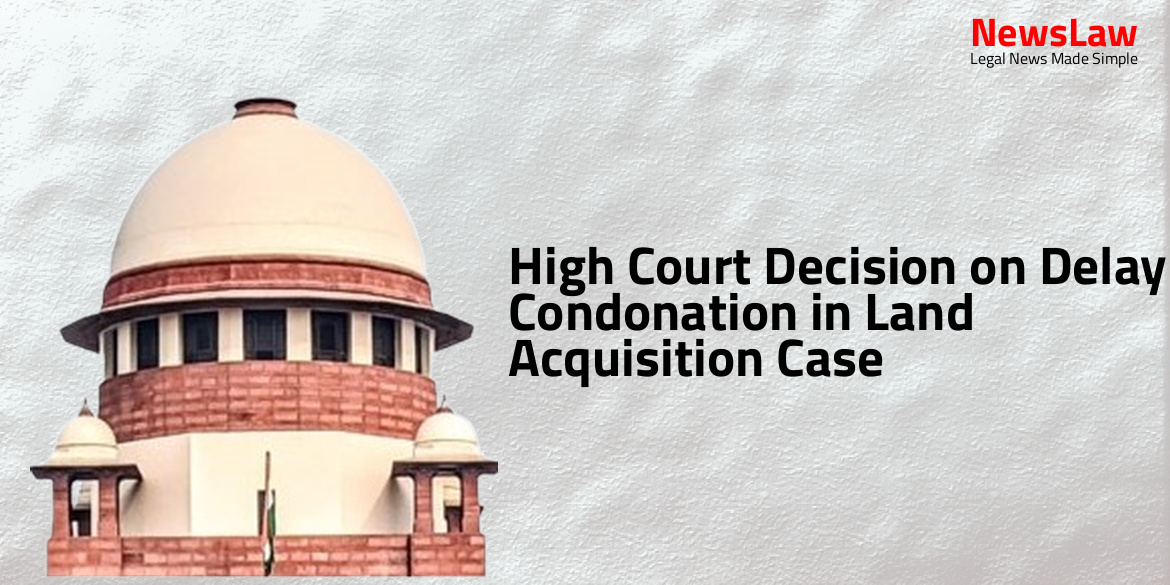In a recent landmark judgment, the Gujarat High Court addressed the case of Detenue against the State of Telangana, emphasizing the critical balance between the state’s power of preventive detention and an individual’s fundamental right to personal liberty. The court highlighted the need for a valid basis for affecting the maintenance of public order, caution in exercising preventive detention powers, and the distinction between minor breaches of peace and serious disruptions affecting the community. Let’s delve deeper into the implications of this significant ruling.
Arguments
- No material besides witness statements and FIRs to show detenue’s activities as breach of public order.
- Detaining authority did not consider detenue being on bail for all offenses.
- AGP claims sufficient evidence of detenue’s habitual activities under Section 2(c) of the Act.
- Court finds detaining authority’s satisfaction not legally valid as offenses alleged do not pertain to public order.
- Detenue’s actions not considered a threat to society or public order per Section 2(c) of the Act.
- Court relies on case law to highlight caution when detaining a person already on bail for the same charges.
Analysis
- Preventive detention involves detaining a person without trial to prevent them from committing certain types of offences.
- Detention cannot be a substitute for the ordinary law and investigating authorities must still carry out their functions.
- Preventive detention is typically for a year and cannot be used for perpetual custody without trial.
- Distinction must be made between ‘law and order’ and ‘public order’ disturbances.
- The detaining authority must have a valid basis for affecting the ‘maintenance of public order’.
- The power of preventive detention should be exercised cautiously and with a proper understanding of the situation.
- Not every act of assault or injury leads to public disorder, distinguishing between minor breaches of peace and serious disruptions affecting the community.
- The personal liberty of an individual is a fundamental right that should not be sacrificed on the grounds of preventive detention.
- To interfere with personal liberty, it must be extremely necessary and the activities of the person must affect ‘public order’.
- The exceptional powers of preventive detention should not lead to a draconian and arbitrary exercise of state authority.
- Every disorder does not constitute a disturbance to public order unless it affects the community on a large scale.
- The maintenance of public order through preventive detention must have a valid basis and not rely on stale materials or incorrectly applied standards.
- Over five detention orders in Telangana have been quashed in the last five years for incorrectly applying the standard for maintenance of public order and relying on stale materials.
- At least ten detention orders in Telangana have been set aside by the High Court in the last year, indicating a careless exercise of the power of preventive detention.
- Seeking shelter under preventive detention may not be the proper remedy in certain cases.
- The powers of preventive detention are exceptional and draconian.
- Article 22 of the Constitution of India must be read as an exception to Article 21, applicable only in rare and exceptional cases.
- Preventive detention should not be used as a substitute for ordinary law enforcement or investigation of crimes.
- Detention orders should be mindful of the constitutional safeguards against abuse and the limited duration of preventive detention.
- The case in question demonstrates a lack of application of mind by the detaining authority to the circumstances impacting subjective satisfaction.
- Acts may affect law and order, public order, or security of State distinctly, with preventive detention reserved for cases endangering public order.
- Adherence to specific laws for punishment rather than resorting to preventive detention is emphasized by the court.
- A District Magistrate’s powers under Rule 30(1)(b) are for preventing subversion of public order, not for maintaining law and order in ordinary situations.
- The registration of FIRs alone does not have a nexus with the breach of maintenance of public order.
- The authority cannot rely solely on the registration of FIRs to invoke power under Section 3(1) of the Act.
- Personal liberty protected under Article 21 is of utmost importance and the detaining authority must ensure that the detention is in accordance with the established procedure of law.
Decision
- The petitioner – detenue is ordered to be set at liberty forthwith, if not required in any other case.
- The impugned order of detention dated 10.01.2024 is quashed and set aside.
Case Title: JAYKISHAN @ JAY RAKESHSINGH TOMAR Vs. STATE OF GUJARAT
Case Number: R/SCA/1543/2024



